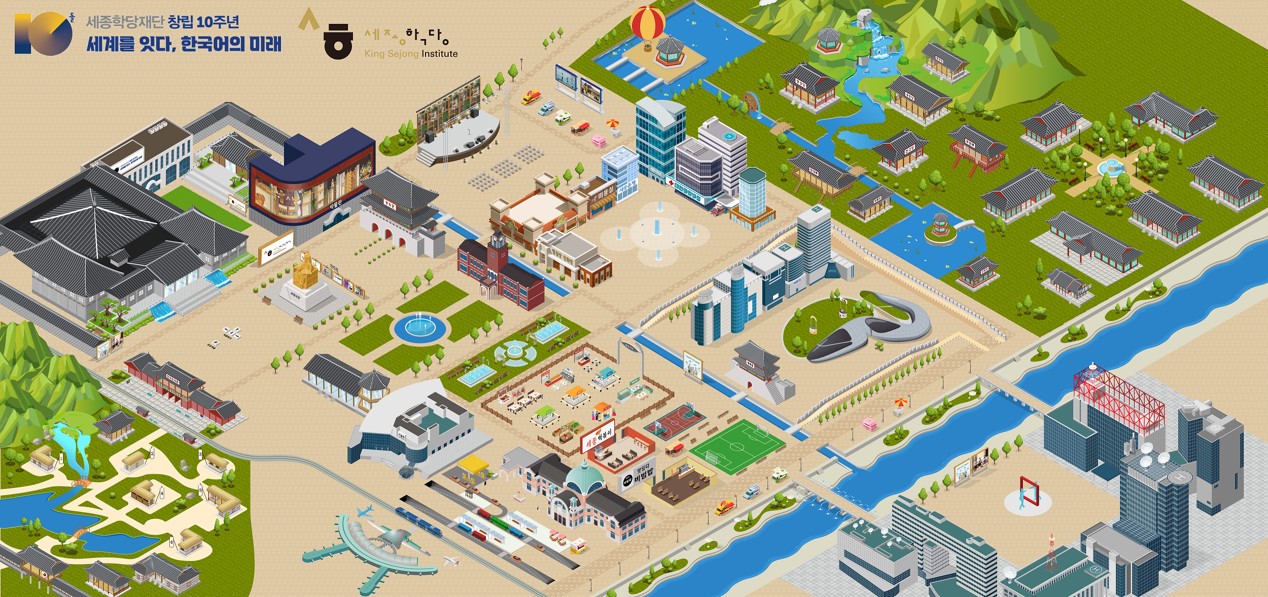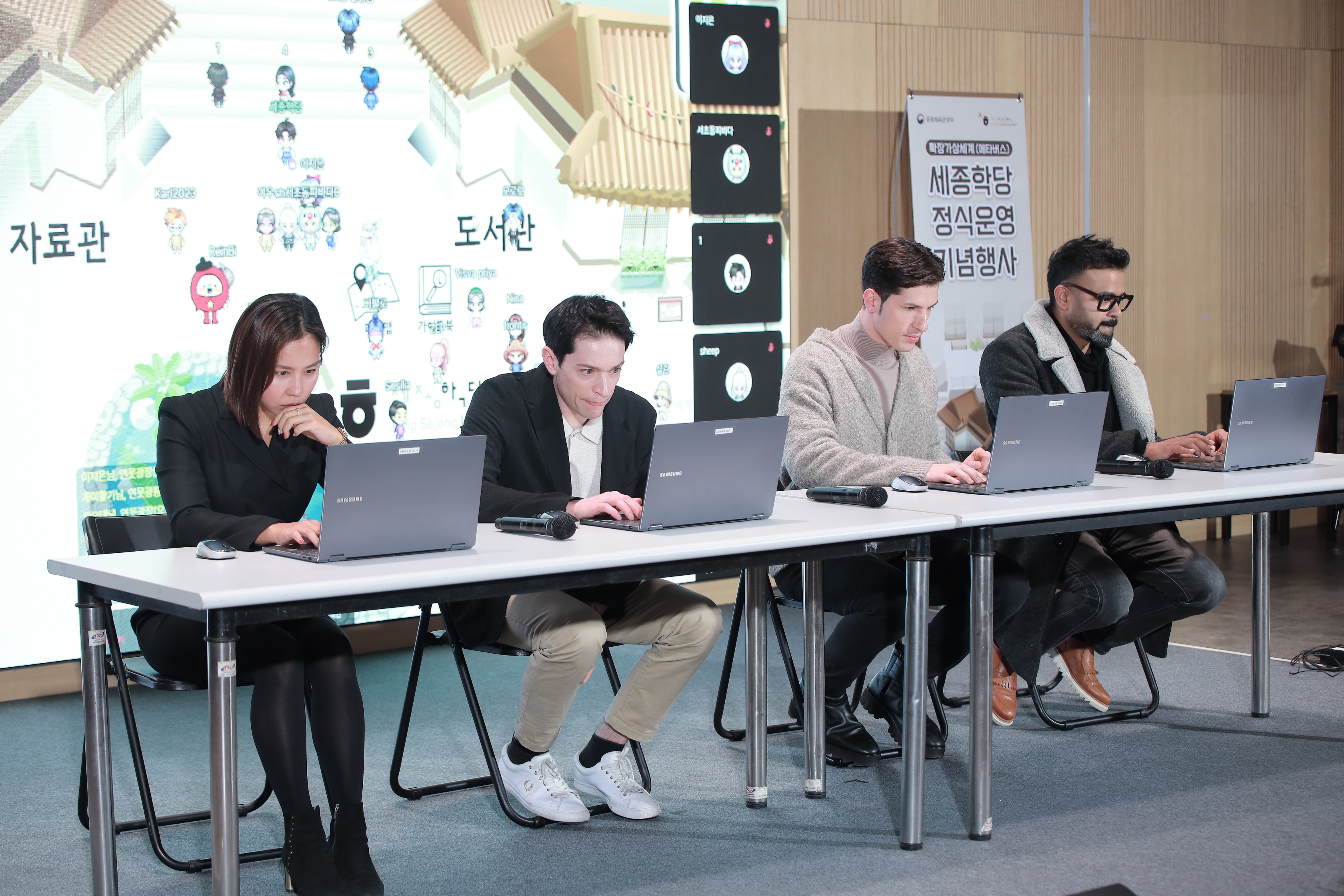[Feb] King Sejong Institute offers Korean language classes in metaverse
Date Feb 20, 2023
 Image from the Metaverse King Sejong Institute (Courtesy of Ministry of Culture, Sports and Tourism)
Image from the Metaverse King Sejong Institute (Courtesy of Ministry of Culture, Sports and Tourism)
To meet the growing interest in studying Korean all over the world, the Ministry of Culture, Sports and Tourism (MCST) and the King Sejong Institute Foundation are offering Korean language classes in the metaverse to help foreigners learn the language anytime, anywhere.
The Metaverse King Sejong Institute (http://ksif.zep.site) allows users to take remote language courses, engage in real-time conversations with others and virtually experience Korean culture, according to the foundation.
The King Sejong Institute started in 2007 with 13 centers in three countries and had reached 244 in 84 countries as of the end of 2022. More than 580,000 people have studied Korean at the language centers so far. The institute also started online courses in 2020 in the aftermath of the COVID-19 pandemic, and these have become quite popular with over 61,000 people enrolled last year.
The growing demand for Korean language classes stems from the increasing popularity of Korean culture. As of September 2022, there were about 9,148 people worldwide placed on the waiting list for the institute’s offline classes, according to the MCST.
“Utilizing metaverse technology in education has infinitely expanded access to Korean language classes for people around the world,” Yoon Sung-chun, MCST deputy minister for culture and art policy, said in a press release.
The Metaverse King Sejong Institute is open to anyone with internet access. It is based on a 2D rather than 3D platform to allow a larger number of students to access the site simultaneously.
 From left, MCST 2030 Advisory Panel member Lim Da-youn and TV personalities Daniel Lindemann from Germany, Alberto Mondi from Italy and Lucky from India experience the Metaverse King Sejong Institute at a Korea Creative Content Agency studio in Seoul, February 7. (Courtesy of MCST)
From left, MCST 2030 Advisory Panel member Lim Da-youn and TV personalities Daniel Lindemann from Germany, Alberto Mondi from Italy and Lucky from India experience the Metaverse King Sejong Institute at a Korea Creative Content Agency studio in Seoul, February 7. (Courtesy of MCST)
The platform consists of “the campus” where Korean is taught and “the village” where users can experience life in Korea. After picking a nickname, users are assigned an avatar and can immediately chat with students from other countries and sign up for Korean classes. Popular tourist attractions, such as Dongdaemun Design Plaza, Seoul Station, the Hangang River Park and Gwangjang Market, can be found in the village.
Every month, the institute will roll out entertaining content related to Korean culture, language and games as well as introduce maps of popular tourist spots like folk villages and amusement parks.
The government conducted a trial run of the platform from November 25 to December 31, during which a daily average of 480 people from 123 countries connected to the service to communicate in Korean.
“It’s fun to practice Korean in a metaverse setting. I could learn more about K-culture while talking to people from all around the world,” a user from Paraguay said in a message left on the visitors’ book during the trial operation, according to the ministry.
On February 7, the culture ministry held a ceremony to celebrate the formal launch of the service in Seoul. Honorary ambassadors for the service, including Daniel Lindemann from Germany, Alberto Mondi from Italy and Abhishek Gupta (aka Lucky) from India, attended the ceremony and experienced the new service.
“Around 150,000 people took the on- and offline courses last year. The metaverse platform will be the cornerstone for increasing that number to 500,000 by 2027,” the MCST’s Yoon said.

The Ministry of Culture, Sports and Tourism's "Korea Here & Now" work can be used under the condition of "Public Nuri Type 1 (Source Indication)."




